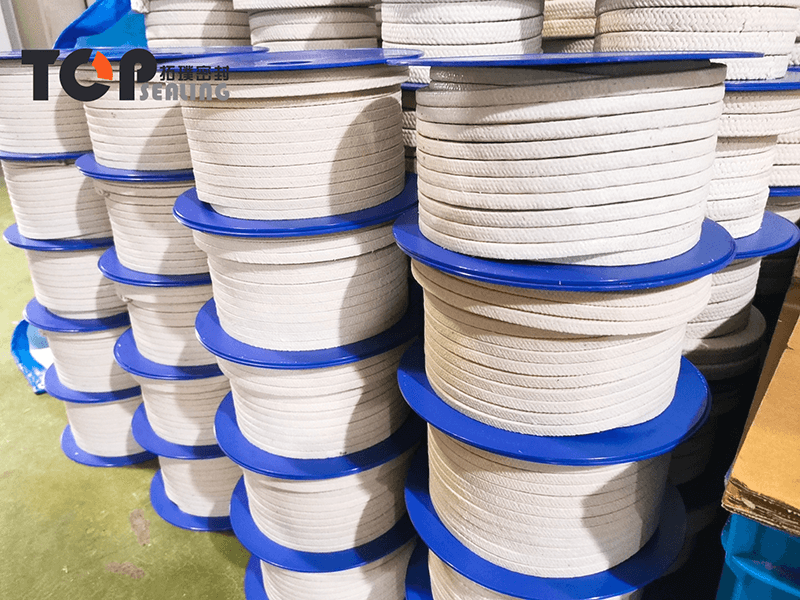Interested in learning about the different types of seals available? Read on! This article will give you the scoop on Weaved, Braided, Non-asbestos, Mechanical, and PTFE packing. We'll also discuss what's in common between these different types of seals. You'll soon see why choosing the right seal is so important. And we'll cover what you need to know to make the most informed decision possible.

Weaved packing suppliers can offer a variety of woven sealing materials. These materials are typically used in stuffing boxes of pumps to seal a variety of fluids. These woven packing seals can be custom designed to withstand specific operating conditions. Common types of woven packing are square and core on weave. Other materials may be used to manufacture these packing seals. Listed below are a few examples of common woven packing seals.
Braided packing seals are made of different fibers, construction materials, and lubricants. The primary advantage of this type of packing is that they provide excellent resiliency to frictional heat while simultaneously acting as a fluid barrier. There are many different types of compression packing seals available, and the correct selection depends on the operating conditions of the equipment. Several primary criteria include size, temperature, and pressure of the media to be sealed. For additional information on woven packing seals, contact a supplier.
If you need to seal a shaft, pump or valve, braided pump and shaft packing is an excellent solution. These types of seals are highly versatile and durable, and are used extensively in a variety of industrial applications. Despite their versatility, they are also easy to install and maintain. Choose the right type of braided packing for the application to ensure its proper operation and longevity. Some important things to consider include surface speed, pressure, temperature, and medium deal with. Be sure to follow break-in procedures to ensure that the seal is installed properly.
Abrasion-resistant braided packing is an effective solution for high-temperature applications. In addition to being durable, it has the added benefit of being corrosion-resistant. This is one of the reasons why it's used for high-speed pumping and valve stem sealing. Braided packing seal suppliers often offer a variety of types and sizes, depending on the application. They also carry different levels of lubricant, depending on the specific application.
A non-asbestos packing seal supplier can help you avoid the pitfalls of using asbestos-based products. Asbestos-based packing seals are known for their poor mechanical performance and poor dimensional stability. Asbestos-free materials are more suited to high-pressure steam applications and are highly conductive. They also have low friction properties, making them ideal for packing applications. Here are some of the advantages of choosing a non-asbestos packing seal supplier:
The most common non-asbestos packing seal materials are polyurethane, aramid fibers, and EPDM rubber binder. These materials are resistant to moderate acid and alkali concentrations, and they can also withstand temperatures up to 700 degrees Fahrenheit. Non-asbestos packing seal suppliers can manufacture a variety of non-asbestos packing seal materials for all of your applications.
With the increasing environmental demands placed on manufacturers, mechanical seals can play a key role in reducing the company's carbon footprint. When properly fitted, they provide excellent leak resistance and require no effluent disposal. Furthermore, they offer considerable power savings and reduced emissions. As a result, they are increasingly becoming an important functional part in modern processes. To learn more about the benefits of mechanical seals, read on to learn about the various types of mechanical seals available.
There are several reasons why mechanical seals are a better option for gland packing. The first is that mechanical seals have a longer lifespan than gland packing. A second benefit is that they can be easily adjusted when a leak is detected. Moreover, mechanical seals are less prone to leakage than gland packing. So, it is vital for any company to choose a reliable seal for their systems. Once a properly fitted mechanical seal is installed in the gland, it will provide many years of trouble-free performance and a lower cost of maintenance.